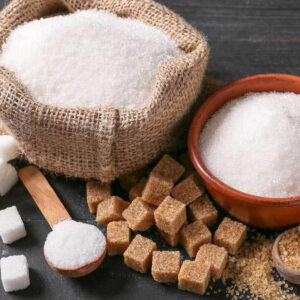Learning about beet sugar vs cane sugar can help shoppers decide which fits their lifestyle better.
Discover the Uses and Advantages of Beet Sugar Vs Cane Sugar in Your Daily Diet Plan
Discovering the distinct high qualities of beet and cane sugar exposes even more than just their sweetening abilities; it highlights their special influences on health and wellness and cooking arts. Beet sugar, known for its subtle taste, is frequently preferred in delicate treats, whereas cane sugar, with its hint of molasses, includes splendor to robust recipes. Each type holds its very own dietary profile and glycemic implications, welcoming a much deeper understanding of their duties in a well balanced diet regimen and sustainable intake practices.
Origin and Manufacturing Procedures of Beet and Cane Sugar

The unique climates and soil kinds needed for growing sugar beetroots and sugarcane add to differences in their cultivation practices and geographical circulation, influencing the economics and sustainability of their manufacturing. beet sugar vs cane sugar.
Nutritional Contrast Between Beet Sugar and Cane Sugar
Despite stemming from various plants, beet sugar and cane sugar are nutritionally very comparable, both mostly including sucrose. Each gives regarding 4 calories per gram, translating to about 16 calories per teaspoon. Structurally, both sugars are made up of around 99.95% sucrose, with marginal amounts of various other compounds like moisture and trace element, which do not substantially alter their dietary profiles.

Ultimately, when picking in between beet sugar and cane sugar based on nutritional content alone, both offer similar advantages and drawbacks as they are essentially kinds of the exact same particle-- sucrose, supplying fast energy without other nutrients.
Influence on Health: Glycemic Index and Caloric Content
Discovering further into the effects of beet sugar and cane sugar on health, it is important to consider their glycemic index and caloric material. The glycemic index (GI) of both beet and cane sugar is around 65, classifying them as high-GI foods, which can create fast spikes in blood sugar levels.
Each kind of sugar consists of around 4 calories per gram, making their calorie web content matching. For those keeping an eye on calorie consumption, especially when managing weight or metabolic health and wellness problems, comprehending this equivalence is important (beet sugar vs cane sugar). Nevertheless, extreme usage of look at this website any type of high-calorie, high-GI food can contribute to health and wellness problems such as weight problems, heart problem, and insulin resistance.
Environmental and Economic Considerations of Sugar Production
Beyond health and wellness influences, the manufacturing of beet and cane sugar also increases considerable ecological and economic concerns. his response Sugar beet growing has a tendency to call for cooler environments and has a lower geographical footprint contrasted to sugar cane, which thrives in exotic areas.
Furthermore, using pesticides and plant foods in both beet and cane sugar growing can lead to soil degradation and contamination, additional affecting biodiversity and regional water bodies (beet sugar vs cane sugar). The option between cultivating sugar beet or cane often rests on local environmental problems and financial variables, making the sustainability of sugar manufacturing an intricate concern
Culinary Applications and Taste Distinctions
While the environmental and economic elements of sugar production are indeed substantial, the selection between beet and cane sugar also affects cooking applications and flavor accounts. Beet sugar, acquired from the sugar beet plant, is understood for its incredibly neutral taste.
Cane sugar, drawn out from sugarcane, usually retains molasses traces, which pass on an unique splendor and deepness. The mild variant in dampness web content between beet and cane sugar can affect the texture and consistency of dishes, making cane sugar a favored option for particular recipes that profit from its special buildings.

Conclusion
Finally, both beet and cane sugar have distinctive beginnings and manufacturing procedures, using similar nutritional profiles with minor differences in salt web content and taste. While their influence on health, particularly regarding my site glycemic index and calories, is comparable, the selection in between them typically boils down to environmental, financial aspects, and certain culinary needs. Understanding these facets can lead customers in making informed choices that line up with their health objectives and flavor choices.